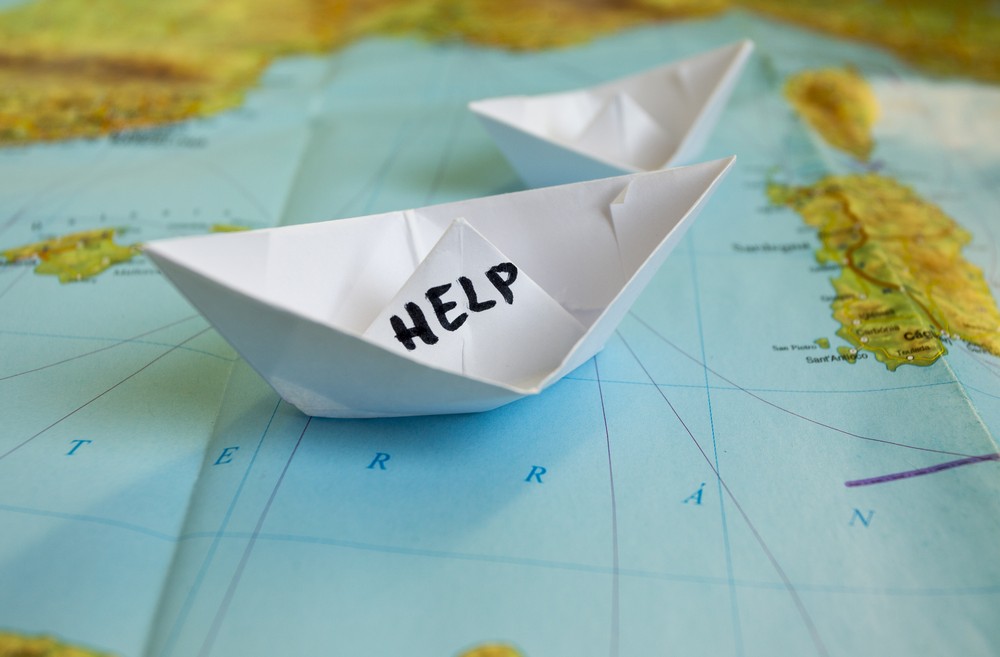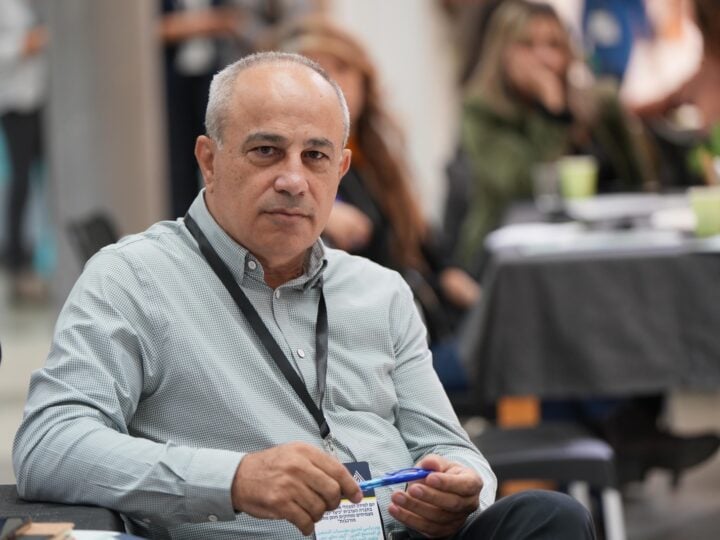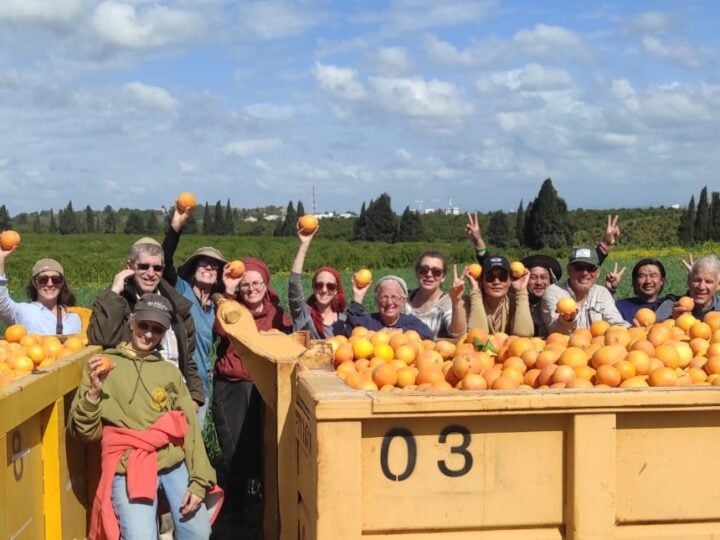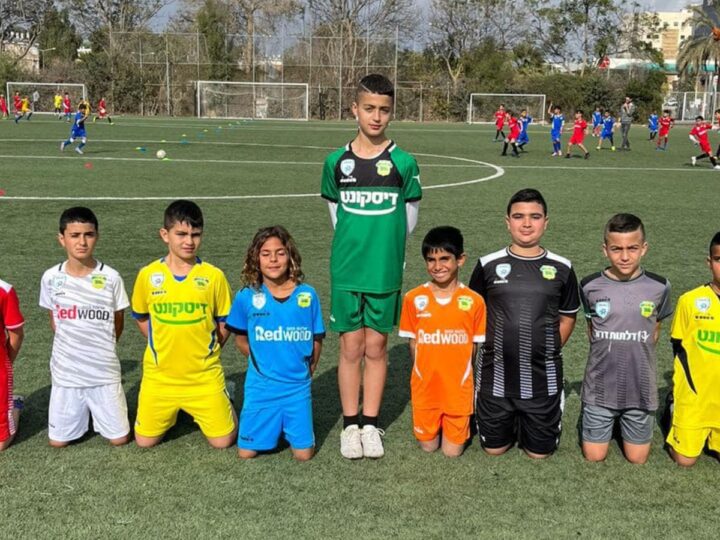When Aboud Dandachi, a Syrian Sunni Muslim now living in Istanbul, created a website in late 2015 dedicated to the Israeli and Jewish organizations and individuals helping Syrian refugees, the world raised an eyebrow.
Why was a Syrian thanking Israel?
Actually, Dandachi’s gesture of gratitude is hardly the only one that Israeli humanitarian volunteers and aid workers have received over the years for helping refugees.
According to a UN report, 130 million people are affected by conflict and disaster across the globe. Israel, though a small country, has a big presence when it comes to humanitarian aid and has rallied round refugees from Syria, Iraq, Pakistan, Sri Lanka, Sudan, Rwanda, Chechnya, Indonesia, Haiti, Burma, Ivory Coast, Eritrea, Kenya, Palestinian Authority territories and many other places.
To the refugees – even those from countries with no ties to Israel – it doesn’t matter that assistance comes from Israel. It matters that there is support.
The ongoing plight of Syrian refugees remains among the most serious in the world today. The Internal Displacement Monitoring Center (IDMC) estimates at least 6.6 million people were internally displaced in Syria as of July 2016.
“The country’s civil war is now in its sixth year… hundreds of thousands of people are trapped inside the country, abandoned in camps or staying with host communities near border points with no legal escape route and often living in subhuman conditions,” reads the IDMC report.
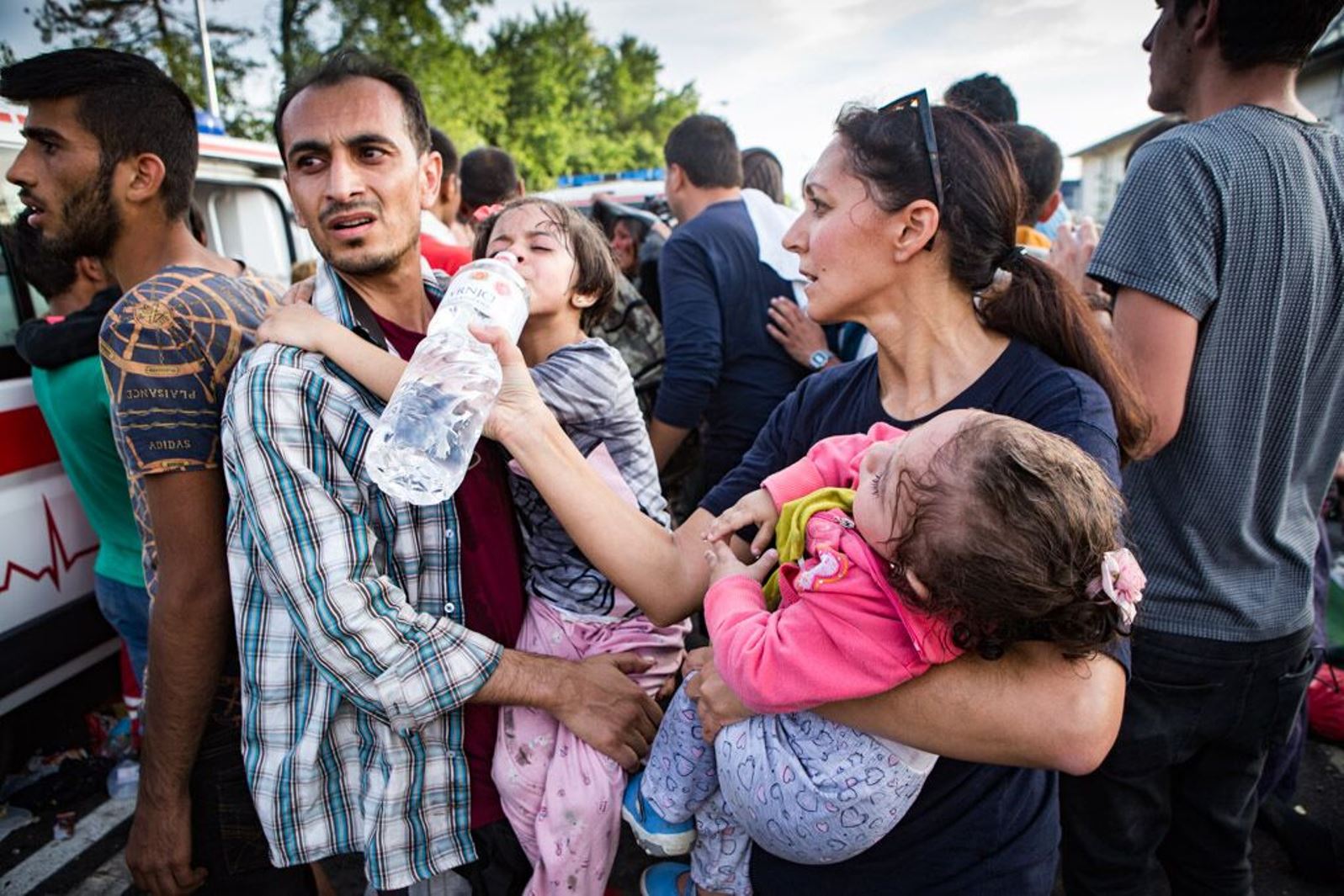
Although Israel and Syria are political enemies, Israeli volunteers have been helping Syrians since the start of their bloody civil war in March 2011. Within a month, the Israeli NGO IL4Syrians began sending sanitary items, food, medications and post-trauma care specialists to Syrian refugees.
While its latest efforts have focused on Syrians, the same group previously helped refugees in Sri Lanka (2004), Sudan (2005-2008), Chechnya (2005), Pakistan (2005), Indonesia (2006, 2009) and Burma (2008).
An Israeli student effort known as Human Warmth (Chom Enoshi), together with Israeli Flying Aid, Hanoar Haoved VeHalomed Youth Movement and Dror Israel, sent a donation of warm clothing and bedding to women and children refugees from the Syrian civil war in 2014.
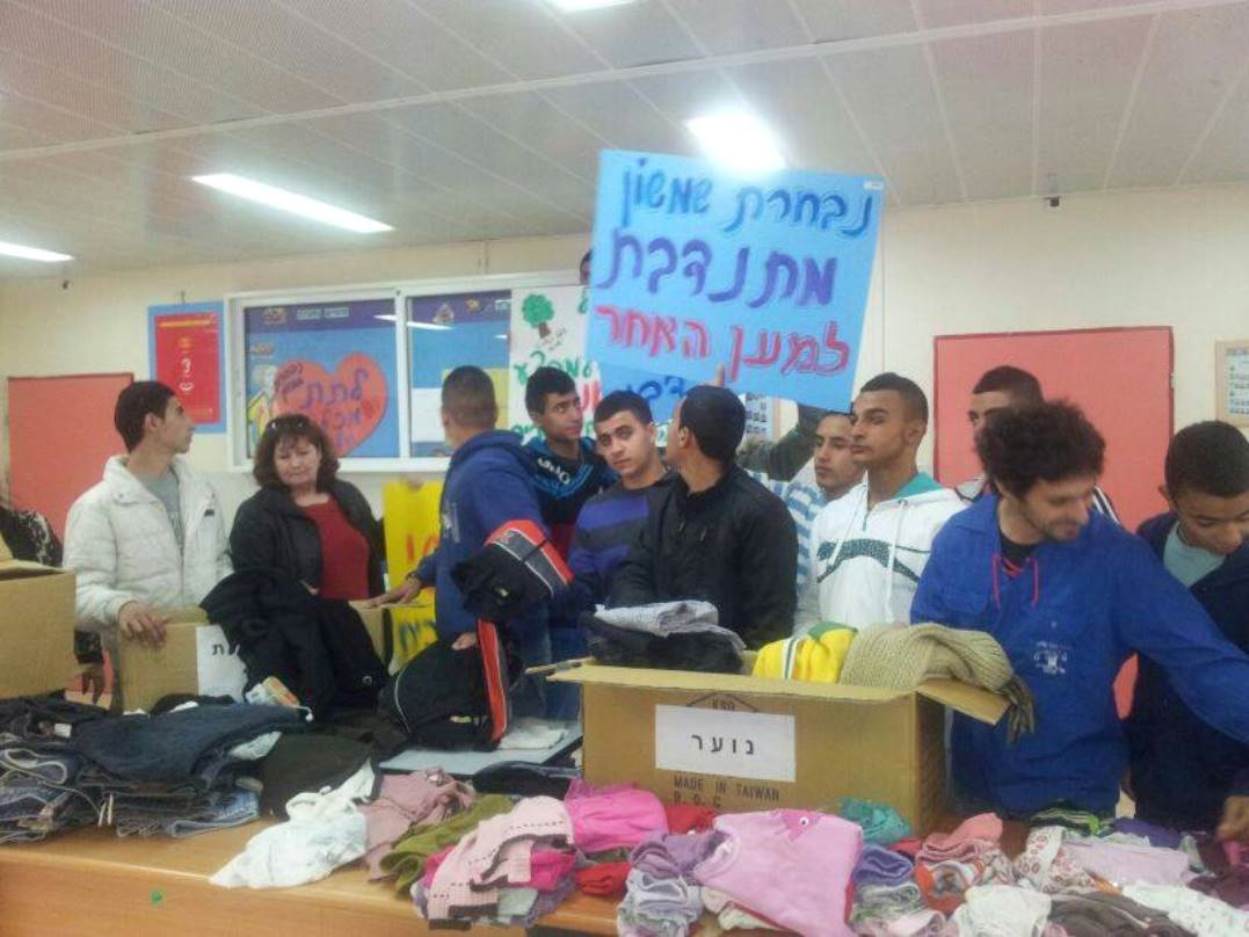
IsraAID: The Israel Forum for International Humanitarian Aid has also been helping the Syrian refugees in dramatic rescue and aid operations. IsraAID has been administering medical, psychological and social services in Greece, as well as handing out appropriate seasonal clothing.
Israeli volunteers have helped survivors of capsized dinghies make it safely to the shores of Greece.
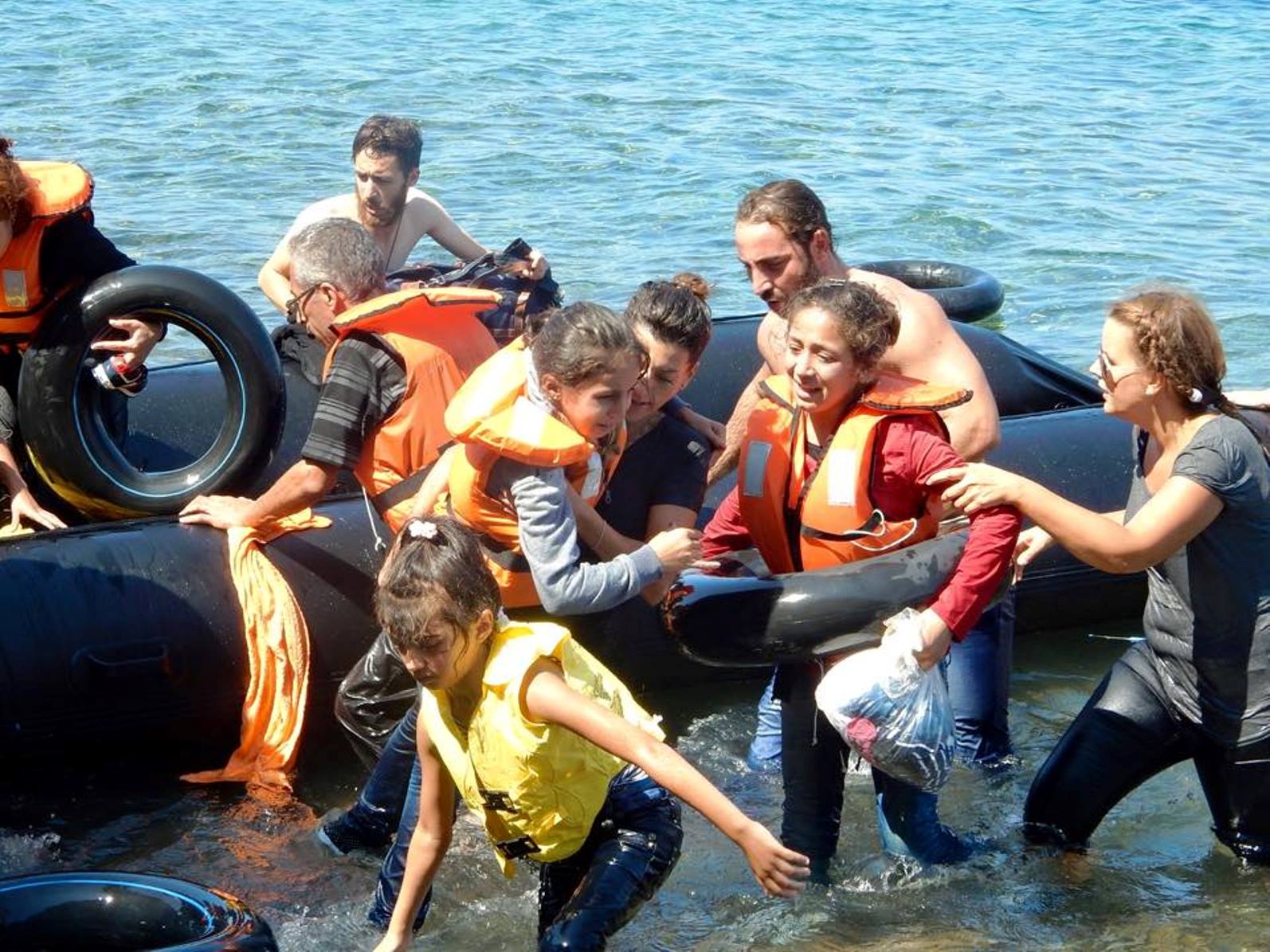
In September 2015, the United Nations turned to IsraAID to provide psychosocial treatment in a refugee camp set up on the island of Rhodes.
In November 2015, a British parliamentarian advocating for the UK to take in 10,000 Mideast refugees read about IsraAID’s work and went to Lesbos to see how the Israeli volunteers help the refugees.
In December 2015, Hollywood actress and humanitarian Susan Sarandon spent a day with an IsraAID team greeting refugees and migrants as they arrived from the nearby coast of Turkey.
Cap: IsraAID gives a workshop to social workers in South Sudan. Photo courtesy https://flic.kr/p/bB9kz6
Long before the Syrian civil war erupted, Israelis were helping refugees in need. Some of the notable aid missions include:
In 2007, an Israeli medical team went to the Kakuma refugee camp in northern Kenya to treat south Sudanese refugees with eye diseases.
In 2008, IsraAID sent a trauma-counseling and social-service team to care for Darfur refugees in the Tregine camp near the Chad-Sudan border. Some of the refugees were granted temporary resident status by the Israeli government, making it legal for them to work in Israel and obtain medical coverage.
In 2009, Israel sent humanitarian aid to Sri Lanka to help hundreds of thousands of people left homeless by the ongoing war against Tamil rebels. Israel’s ministries of Foreign Affairs and Health, the Joint Distribution Committee (JDC) and MASHAV – Israel Agency for International Development Cooperation sent medical aid in response to an international plea from the president of Sri Lanka.
In 2011, IsraAID sent medical aid to Liberia to help refugees – estimated at more than one million — fleeing civil war in the Ivory Coast. That same year, Israel’s Nitzana Educational Community created Tikun Olam, a boarding school for teenage refugees from Eritrea and Sudan, at Kibbutz Nitzana near the Egyptian border.
https://www.youtube.com/watch?v=aEvXIvmS0u8
In 2014, IsraAID distributed emergency supplies to Christian and Yazidi refugees fleeing ISIS as part of an international effort.
In September 2015, IsraAID sent volunteers to Europe to provide refugees from the Middle East, Asia and Africa with humanitarian assistance and help with integrating into European society. The Israeli volunteers are also working in partnership with European aid agencies and local Red Cross chapters to manage the current refugee crisis, considered the largest since World War II.
Sting, the British rocker, invited some IsraAID workers, along with refugees from Iraq, Afghanistan and Syria, to a private show in Berlin in August 2016.
“Sting and his band heard about IsraAID’s work in helping the refugees across Europe as well as some of the moving stories of the harrowing journey refugees endured on their way to Germany,” a member of the Israeli aid group told The Jerusalem Post.
In November 2015, doctors and social workers from Natan International Humanitarian Aid, an Israeli network for disaster relief, set up a medical clinic in the refugee registration camp in Preševo, Serbia, to treat massive streams of refugees from Iraq, Syria, Afghanistan and other conflict areas.
In February 2016, Israeli humanitarian aid volunteers arrived in the “forgotten refugee camps” of Calais and Dunkirk, in northern France, in response to international calls to help the thousands of migrants living in squalid conditions.
“I think Jews have a responsibility, after the Holocaust in Europe only 70 years ago, to get involved and actually become leaders in this. We know, more than others, what happened when countries wouldn’t accept Jewish refugees of atrocities,” IsraAID Director Shachar Zahavi told ISRAEL21c.
IL4Syrians’ founder expressed a similar feeling. “Being survivors of the Holocaust, I feel we have a moral prerogative to be the voice of voiceless people,” she told ISRAEL21c. “I don’t need thanks. Recognition is unimportant. I just do the mission and deliver what we have to deliver.”




